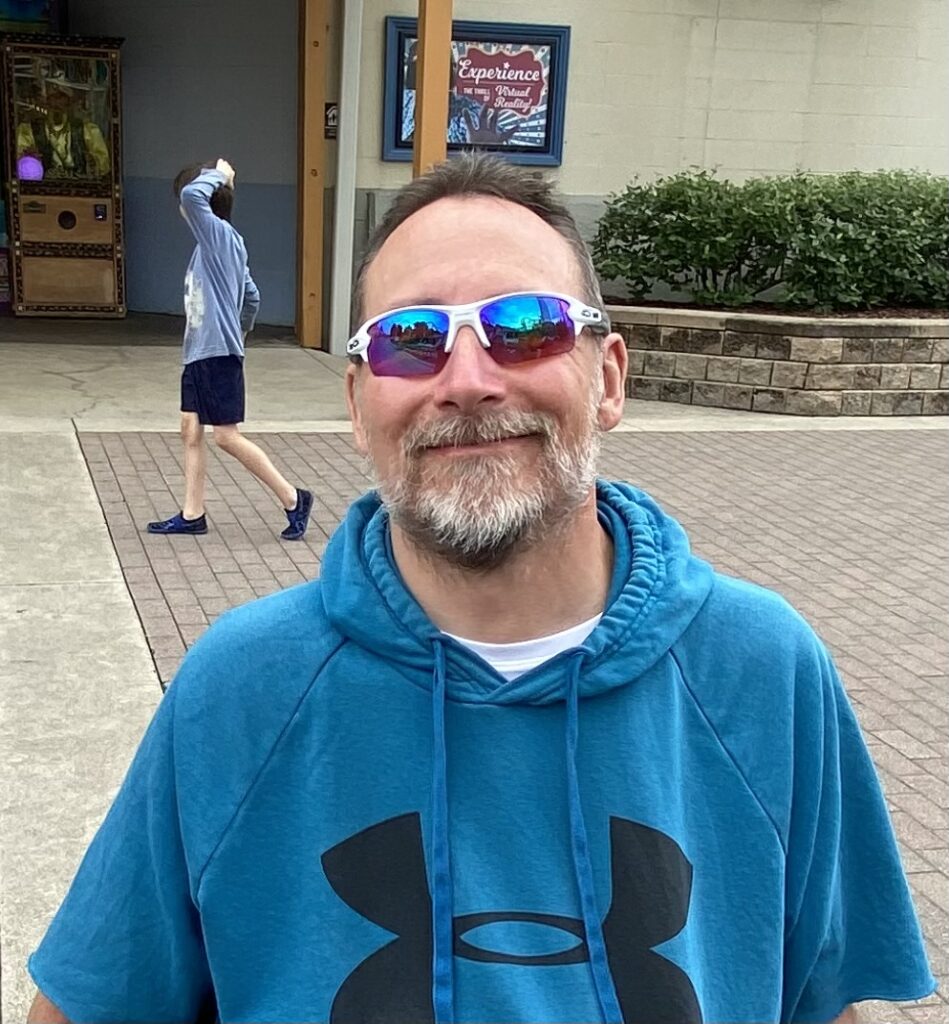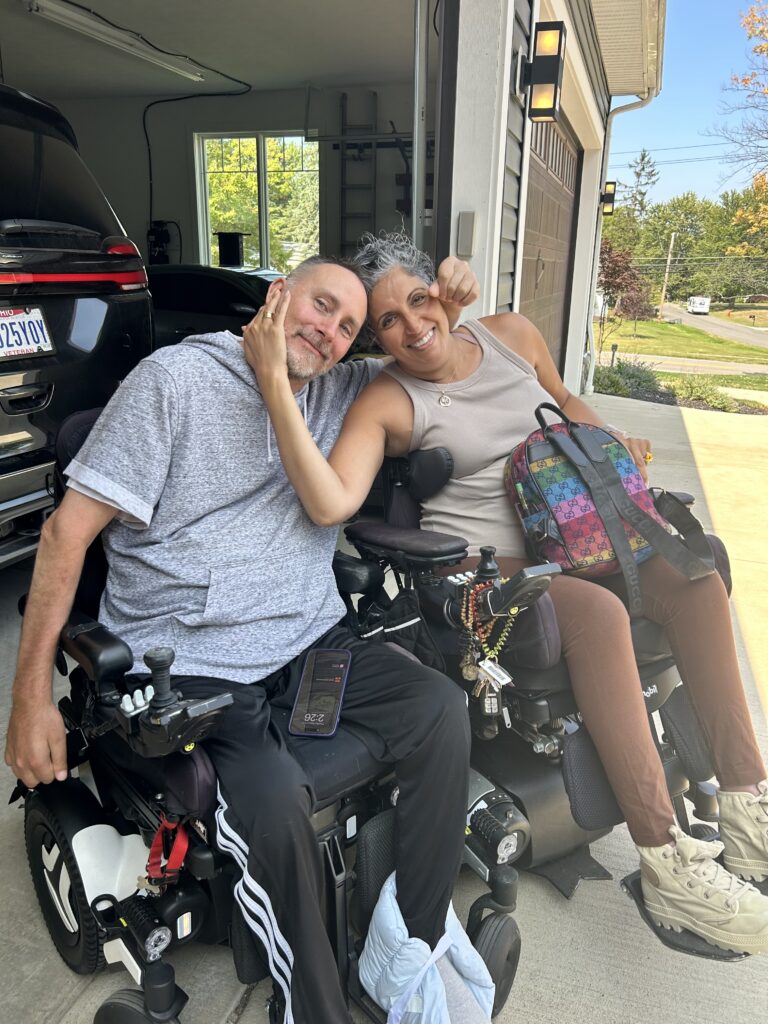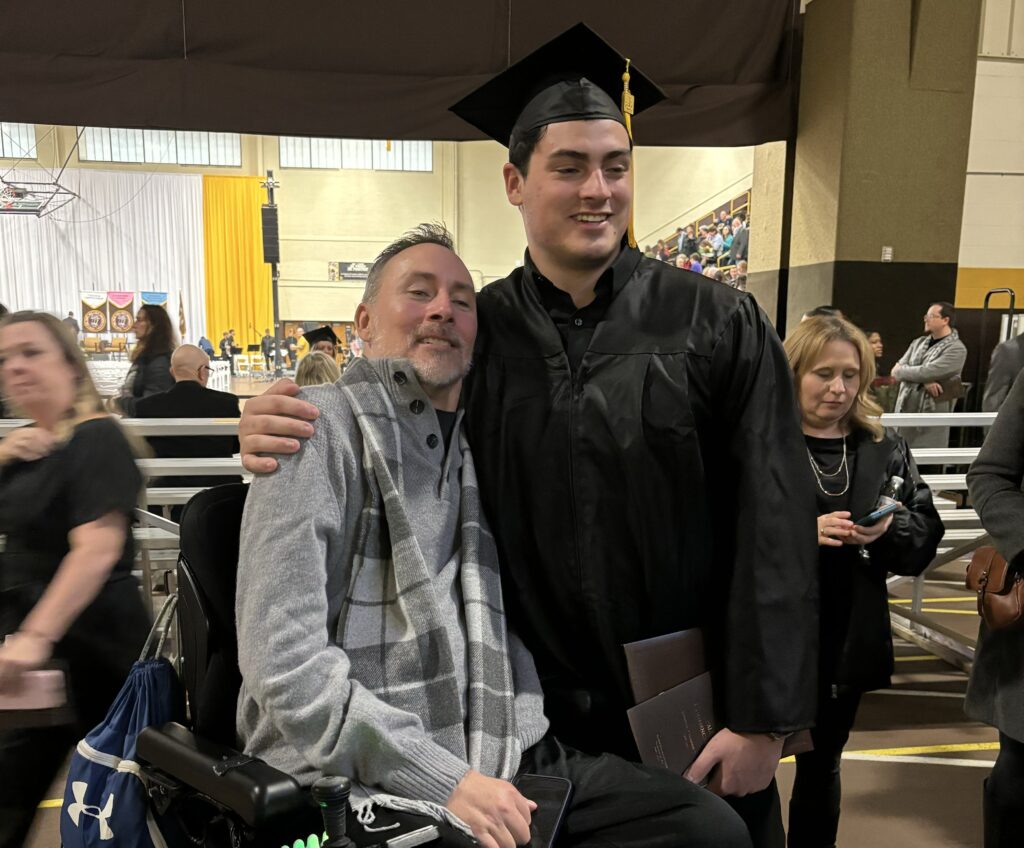Chris Wynn has been an inspiring and active member of our community for many years. Many will remember him as the driving force behind Buckeye Wellness, an adaptive fitness center that provided individuals with spinal cord injuries (SCIs) access to specialized equipment and, just as importantly, a supportive peer network.
Unfortunately, Buckeye Wellness closed in 2021, as the COVID-19 pandemic drastically reduced clientele and made it difficult to keep a full-time trainer on staff. Despite the closure, the impact of Buckeye Wellness continues to resonate through the community today.

“The most important part of Buckeye Wellness was having the public access to adaptive equipment,” Chris shares. “Some people came in just to use the FES bike.”
The Functional Electrical Stimulation (FES) bike uses low-level electrical impulses to trigger muscle contractions in the legs and arms, allowing individuals with SCIs to pedal a stationary bike. This therapy can improve cardiovascular health, muscle strength, bone density, and even blood glucose control—all while reducing spasms and increasing range of motion.
Beyond the physical benefits, Buckeye Wellness built a strong peer support network—something Chris says was invaluable.
“It was so enjoyable being able to talk about anything—nothing was off the table. Being a resource for those newly injured was a big blessing. You don’t know what you don’t know, and connecting with others opened the door to information, resources, and friendship.”

Even after the gym closed, Chris has remained in touch with many members of that community. A study published in an occupational therapy journal even highlighted the mental health benefits of having access to an inclusive, adaptive gym like Buckeye Wellness.
Today, the space continues under Dr. Sharon Covey as the Center for Stroke and Hand Recovery, operating with a similar structure but without the same peer-support atmosphere that made Buckeye Wellness so special.
Running Buckeye Wellness wasn’t without challenges—it helped Chris focus on others even as he managed his own health. Since closing, Chris has kept busy with a mix of hobbies and family projects.
In 2021, he and his family moved into a new home that they built from the ground up. His son, who now works in the IT department at Baldwin Wallace University, shares Chris’s love of mechanics. Together, they’ve been working on a car restoration project, even installing a lift in the garage to make it accessible. Chris has been teaching himself CAD software and 3D printing custom parts for the build.

While he admits that he hasn’t been as active since the gym closed—which has led to some muscle tightness and secondary health challenges—Chris continues to advocate for movement and flexibility.
“My advice would be to stay active—especially with twisting movements. Staying loose helps keep pain away and maintain independence in daily activities.”
He also continues to explore different therapies, chiropractic care, and massage to help with muscle tightness. Chris has received two implanted devices from the FES Center in Cleveland, OH. Besides the Cleveland VA, Metro Health Medical Center and Case Western University were instrumental in developing and implanting the system.
The system he received and eventually had removed was a whole-body system. It included stimulation for trunk muscles, which enabled people to sit straighter. It could also stimulate the legs and glutes to pedal a bike. The additional electrodes he had implanted gave him a limited grasp in his right hand. It is worth mentioning that the bugs have been worked out in these systems since his was implanted, and it’s an excellent means of restoring function.
Besides the device not functioning properly, the other and main reason I had it removed was source pain where the power module was implanted. I still highly recommend the device, and if you want to learn more about it, check out the Cleveland FES Center for more information about their programs.
Outside of therapy and tinkering with cars, Chris has found peace in birding—setting up feeders and cameras in his yard to observe visiting species. Along with his two dogs, the hobby brings daily joy and connection to nature.
Chris remains open about the ongoing challenges of living with SCI, including managing bowel and bladder health, and shares how listening to his body has helped him avoid complications. Regular Botox injections have helped reduce high bladder volumes and prevent kidney damage, while dietary adjustments have reduced kidney stones.
“Knowing your symptoms is key,” he says. “It helps prevent infections from getting out of control and from building resistance to antibiotics.”
Recently, Chris learned that his diaphragm is not paralyzed, which has opened new doors for pulmonary therapy and breathing improvement.Through every change and challenge, Chris continues to approach life with resilience, curiosity, and humor. His message is clear: stay active, stay connected, and never stop learning.
